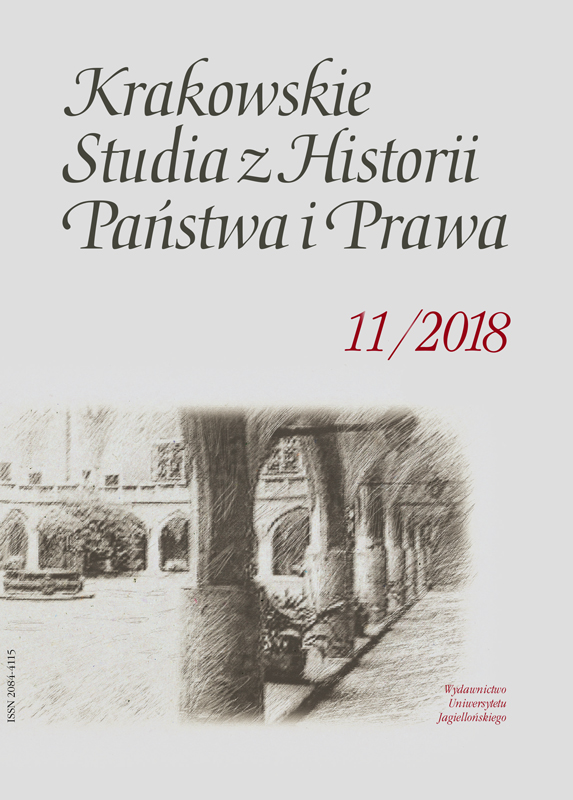Condictio causa data causa non secuta’ and Development of the Contractual System
Condictio causa data causa non secuta’ and Development of the Contractual System
Author(s): Marek SobczykSubject(s): History
Published by: Wydawnictwo Uniwersytetu Jagiellońskiego
Keywords: unjustified enrichment; condictio; freedom of contract; contractual system
Summary/Abstract: In the Slovak historiography, constitutional history was dominant and accounted for the largest number of publications in the researched period of 2000–2015, comprising monographs, journal articles, students’ textbooks and collections of conference papers. The contribution provides an overview of production revolving around five major topics of Slovak constitutional historiography, offering an extensive list of works from the 2000–2015 period in the footnotes and in the final list of bibliography. The aim was to include all relevant publications from the period, which explains the number of references and the length of the list of bibliography. In this paper I deal with the relations between one of the basic unjustified enrichment claims in Roman law condictio causa data causa non secuta and the development of contract law from Antiquity to modern civil law. Two main issues of my research concern the condictio itself and the evolution of contract law from the Roman contractual nominalism to the modern principle of freedom of contract. In the first part of the paper I describe the legal character of condictio causa data causa non secuta and fields of its application in Roman law, especially in cases of innominate contracts. The second part of the paper is devoted to Roman contractual nominalism, the achievements of Roman jurists in recognition of new contracts, the contribution made by Medieval lawyers, canonists, lex Mercatoria and Roman--Dutch jurisprudence in the 17th century for the general recognition of the pacta sunt servanda principleand freedom of contract. I come to the conclusion that as a result of the long-term evolution towards the freedom of contract condictio causa data causa non secuta lost its significance in the field of contracts. Already in the oldest civil codes of modern times the scope of application of that condictio was narrow and as a rule did not extend to contracts. As a consequence, the need for its further existence was disputed during the preparatory work on the German civil code. In the last two parts of the paper I present the current significance, legal character and fields of application of the condictio in German and Polish civil law. As a rule in the contemporary law the condictio is not applicable within the framework of contract law.
Journal: Krakowskie Studia z Historii Państwa i Prawa
- Issue Year: 11/2018
- Issue No: 2
- Page Range: 177-195
- Page Count: 19
- Language: English

